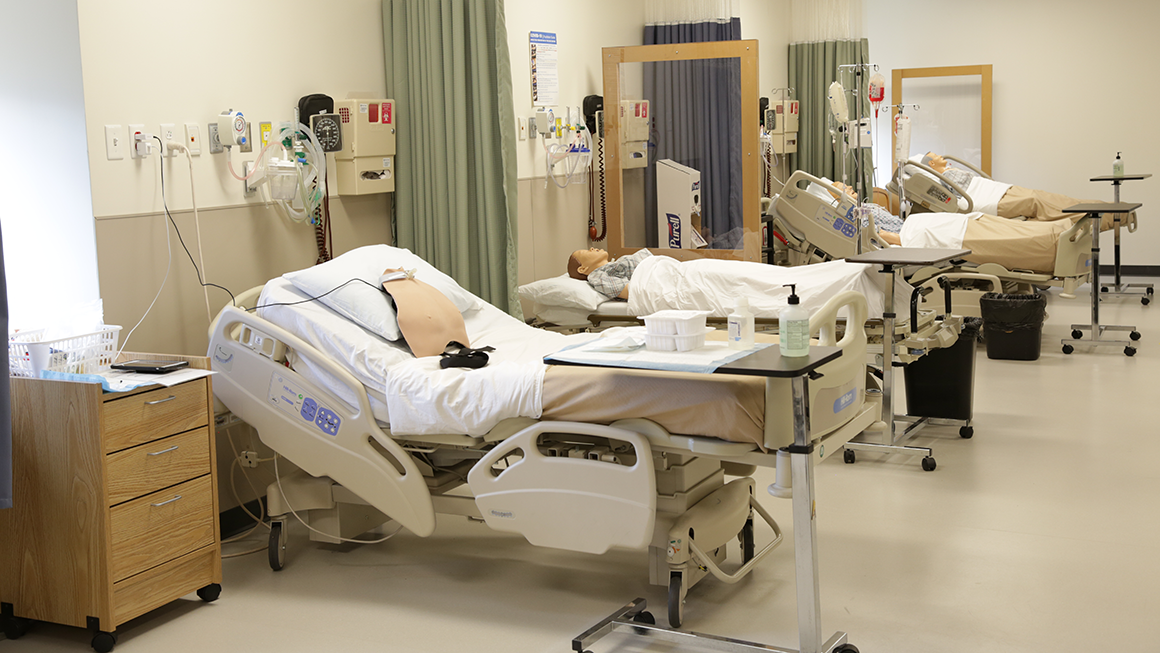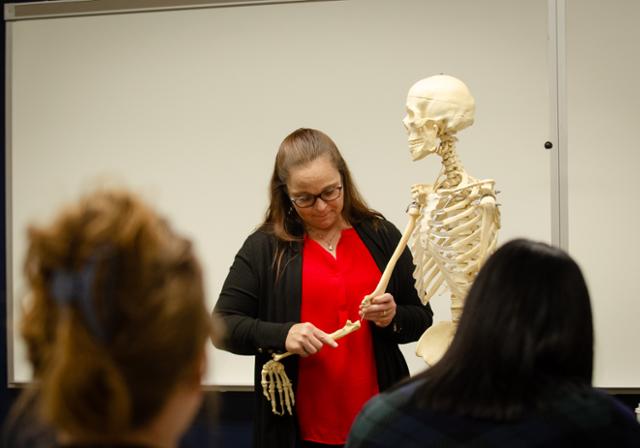Nursing Faculty Residency
Are you interested in becoming a nurse educator and shaping the future of health care to educate the nursing professionals of tomorrow? We have developed an introductory workshop that will help you reach the next step in your career. You will hear from expert educators about what it means to be nursing faculty.
Purpose
This workshop was developed to increase the number of high-quality nursing faculty to address the serious national nursing shortage. Bill and Joanne Conway, the philanthropists behind the Bedford Falls Fund, are renowned for their generosity in supporting nursing education and addressing the shortage. With their support, we have built a workshop that will begin your journey to becoming nursing faculty.
Goals
The School's faculty residency program will create a mentorship program using faculty, state-of-the-art simulation training and deliver instruction on curriculum development, classroom teaching, theory and clinical evaluation, among many other skills that will ensure your success inside the classroom.
Workshop Information
Modules
Preparing for the Role as a Nurse Educator
Duquesne Nursing faculty will serve as mentors to participants in the workshop. They will be there to assist you on every step of your journey to becoming a nurse educator.

Engagement
You will be part of a small group, and Duquesne faculty will serve as mentors to guide you through the workshop and assist with questions during the modules. Our faculty have your best interests at heart and want to see you reach your future goals.Professionalism in Nursing Education
In this module you will:
- Develop a philosophy of teaching
- Learn to manage a classroom or clinical setting
- Manage difficult situations (i.e., conflicts with students)
- Build a Curriculum Vitae (resume)
Introduction to Curriculum and Evaluation in Teaching
In module 2, you will begin to learn the ins and outs of creating a syllabus and building your curriculum for your courses.
- Purpose of a syllabus
- Introduction to Undergraduate Curriculum
- Methods for effective evaluation
- Constructive feedback
- Experience various teaching styles
Simulation
The third and final module will focus on simulation.
- Heath Care Simulation Standards of Best Practice
- Pre-Briefing
- Debriefing
- Observe a simulation
- Discuss development of simulation scenarios
Required In-Person Residency
The required two-day, in-person Nurse Faculty Residency (NFR) offers participants the opportunity to observe a variety of teaching modalities utilized in nursing education. The program includes classroom engagement with faculty from the Duquesne University School of Nursing, as well as guided reflection and observation in the simulation lab.
The residency will be scheduled following the University’s Spring break, between mid-March and early April. A detailed schedule will be provided during the in-person orientation session.
A Hybrid Approach

Simulation Scenarios
Participants will be invited to campus to learn simulation-based education in Duquesne's state-of-the-art simulation center. Participants will have the opportunity to observe simulation-based activities with students from various clinical courses. Participants will observe evidence-based pre-briefing and debriefing techniques as outlined by the International Nursing Association for Clinical Simulation and Learning (INACSL) best practices. Participants will be encouraged to reflect and discuss the teaching and learning modalities of simulation-based education.

Teaching Observations
Participants will have the opportunity to observe faculty teaching a variety of nursing courses during their assigned residency day. The opportunity will allow participants to examine and reflect upon various teaching styles. Participants will have the opportunity to view educators in the classroom and lab setting.
FAQs
The workshop is 9 months. It begins in September with a required, in-person orientation meeting.
The program is offered at no cost.
A scholarship of up to $1,000 for airfare/hotel expenses may be awarded.
School of Nursing faculty have created a residency workshop with an emphasis on mentorship that will provide state-of-the-art simulation education and deliver instruction on curriculum development, classroom teaching, theory and clinical evaluation, among other skills.
All BSN graduates, MSN graduates, staff nurses, adjunct clinical faculty and graduate students are invited to attend.
The program is primarily self-paced with occasional visits to campus.
The workshop will use a hybrid approach. It has self-paced online modules, a required in-person orientation, a required two-day residency, and scheduled zoom meetings.
The required two-day residency will be held in the spring. You will find out the specific dates for the residency during your orientation.
Participants will receive a letter stating completion of the residency workshop.
The workshop aims to increase the number of adjunct and clinical teachers who may move to full-time faculty roles.


